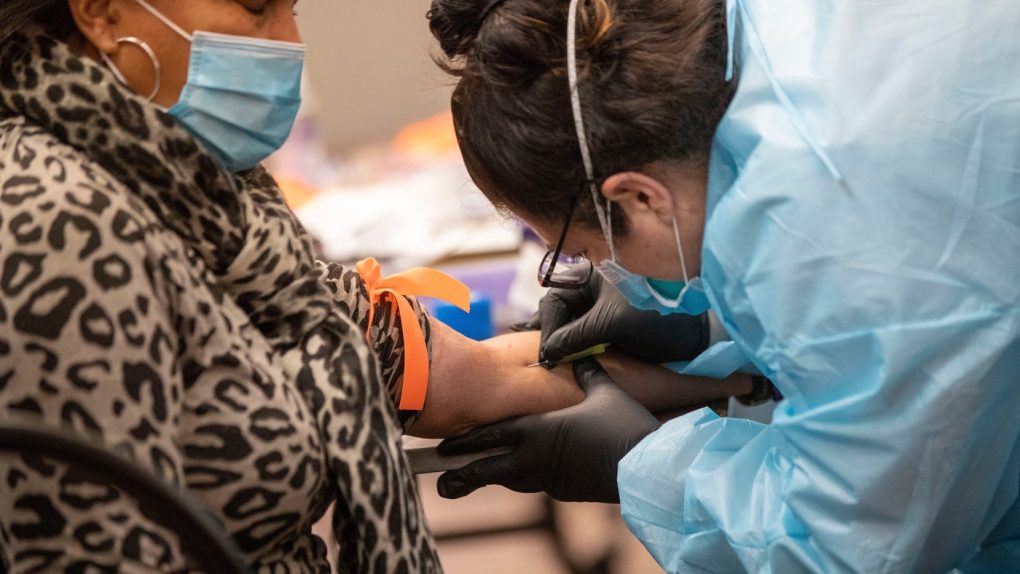- Two new coronavirus studies prove that COVID-19 immunity can be obtained either via direct exposure to SARS-CoV-2 or via a vaccine.
- Researchers have used rhesus macaque to show that reinfection isn’t possible for COVID-19 survivors or for subjects who received vaccine candidates.
- The studies confirm recent COVID-19 immunity research and are good news for vaccine and antibodies drugs that are in development. What they can’t explain is how long the immunity will last.
- Visit BGR’s homepage for more stories.
The novel coronavirus might be able to spread faster than any pathogen we’ve come across in recent years, but we’re getting closer and closer to defeating it. Drugs that are used on other illnesses have been found to work with COVID-19 already. They can speed up recovery and reduce life-threatening complications. On top of that, the first vaccine candidates have already begun human trials, and they’re delivering promising news. Not to mention that scientists are already working on brand new COVID-19 drugs that can both cure the disease and provide temporary immunity until vaccines arrive.
Regardless of the kind of therapy that doctors are using for the new virus, immunity is the main goal and a pair of new studies indicate that COVID-19 immunity is real. How long will that immunity last? That’s a question we won’t know the answer to for a long time to come.
South Korea’s CDC authority delivered good news a few days ago when it published preliminary conclusions that say a COVID-19 relapse isn’t possible. The patients who may test positive a second time after surviving the disease won’t be contagious, and South Korea has already changed its policies for such patients — they won’t be quarantined but people they come in contact with will be monitored until we know more.
Acquiring COVID-19 immunity can be done two ways. One involves getting infected with SARS-CoV-2 and surviving the disease. This is what will happen with most COVID-19 patients. The second one involves a vaccine that will create an immune response and offer protection against the virus in people who never got it.
The two new studies come from the same source and they tackle both problems, proving that COVID-19 immunity will prevent reinfection.
Researchers at Harvard Medical School, Beth Israel Deaconess Medical Center, and the Massachusetts Consortium on Pathogen Readiness (MassCPR) studied immunity in COVID-19 survivors and vaccine candidates, reports Harvard Medical School.
“The global COVID-19 pandemic has made the development of a vaccine a top biomedical priority, but very little is currently known about protective immunity to the SARS-CoV-2 virus,” senior author Dan Barouch said, “In these two studies, we demonstrate in rhesus macaques that prototype vaccines protected against SARS-CoV-2 infection and that SARS-CoV-2 infection protected against reexposure.”
The first study involved 35 rhesus macaques monkeys that were divided into vaccine and control groups. 25 of them received one of the six DNA vaccine prototypes and 10 where given placebo drugs. The monkeys were then exposed to the SARS-CoV-2 virus.
Eight of the 25 vaccinated animals showed no detectable virus after exposure, while the others showed very low levels of the virus. The viral loads were dramatically lower in the vaccinated animals compared to the control group. The higher the level of antibodies, the lower the viral load. That’s a finding that suggests these neutralizing antibodies can be used to benchmark vaccines.
In the second study, the team assessed the natural immunity of the same species of monkeys against reinfection. Nine adult macaques were exposed to the virus, and researchers monitored their progression. The subjects experienced the expected viral pneumonia and recovered, developing antibodies within 28 days.
A week later, the monkeys were reexposed to the virus. They showed almost complete protection to the virus. Analysis of nasal swabs and bronchoalveolar lavage following the reinfection showed traces of the virus consistent with exposure, but the levels declined rapidly and there was no recoverable virus in samples. “Little or no clinical disease was observed in the animals following rechallenge,” the authors explain, as the animals developed rapid immune responses following reinfection with the same pathogen.
“SARS-CoV-2 infection in rhesus macaques induced humoral and cellular immune responses and provided protective efficacy against SARS-CoV-2 rechallenge,” the study reads. “These data raise the possibility that immunologic approaches to the prevention and treatment of SARS-CoV-2 infection may, in fact, be possible.”
A similar study from China on the same type of subjects offered the same conclusion: COVID-19 immunity is obtained on macaques. What these studies can’t answer is how long that immunity lasts. More research will be required to assess human resistance to the virus, but the conclusions of the two studies suggest that vaccines should work. The research is also good news for monoclonal antibody drugs that are in development, as they might help improve the condition of COVID-19 patients and provide temporary immunity in people who have not been infected.
Barouch’s laboratory is also working on an experimental vaccine with Johnson & Johnson that should reach human trials soon. That vaccine isn’t a DNA drug like the ones used in one of the studies, Boston Globe explains. Instead, the J&J vaccine candidate uses a common cold virus to deliver a coronavirus antigen and stimulate immunity. The vaccine is seen by Morgan Stanley analysts as one of the six likeliest COVID-19 vaccines to succeed, even though it’s several months behind compared to other products that have already reached Phase 2.








